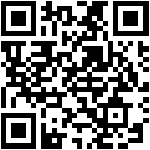Mentors can make a big difference in your career and your life, especially if you’re pursuing a nursing career. A study published in the International Journal of Environmental Research and Public Health in 2022 found that nurses who have mentors can experience higher levels of job satisfaction and demonstrate more commitment to their employers.
If you’ve been considering enrolling in a nursing degree program with the goal of becoming a nurse, it can be helpful to explore the mentoring process and how to ask someone to be your mentor. While finding a mentor can feel intimidating, it doesn’t have to be. You can do some things to make the process go smoothly. In the nursing profession, you will find that many experienced nursing professionals will be willing to make the commitment of time and effort to help mentor the generation of nurses.
Benefits of Asking Someone to Be Your Mentor
Going through the process of asking someone to be your mentor in your nursing career can bring invaluable benefits to both parties in a mentoring relationship. Specifically, people who receive mentorship have the opportunity to:
- Get valuable career advice, guidance, and support
- Gain insight into important career skills and specialties
- Build a professional network of colleagues
- Learn about options for career development
- Reduce the stress associated with a new career role
- Learn by example from someone who serves as a role model
The nurse mentor also derives many benefits from a mentoring relationship. In the nursing profession, there is a strong culture for each generation of nurses to help mentor the upcoming generation of new nurses. For example, people who serve as mentors have the opportunity to:
- Share their knowledge and passion for their careers
- Refine their communication skills
- Help strengthen the culture of a working environment
- Expand their knowledge of younger generations
- Enhance their skills in providing guidance and career development opportunities
- Build leadership expertise
Mentorship can be particularly beneficial in nursing. Veteran nurses have valuable experience, and they can share the lessons they’ve learned with individuals who are just beginning their careers in nursing.
Steps for How to Ask Someone to Be Your Nursing Mentor
Knowing how to ask someone to be a mentor is important, and following the steps outlined below can help to ensure that you get the most out of the mentorship process.
Step 1: Explore and Evaluate Your Needs
First, do some self-examination. Consider the reasons you’d like to have a mentor. Think about what you’d like to gain from a mentoring relationship and what you can bring to the relationship. In addition, identify goals that you’d like a mentoring relationship to help you achieve. For example, perhaps you’re seeking career advancement and would like to work with a mentor to move in that direction. Or perhaps you’d like to acquire more expertise in a specific area and are seeking a mentor who could assist you in that effort.
Step 2: Identify the People Who Could Be Your Mentor
The best person to be your mentor will be someone who’s ahead of you on your career journey. Ensure that the person you choose has enough experience to share, but isn’t so far ahead that they can’t relate to your day-to-day challenges and duties.
Seeking a mentor who has enough time to participate in an effective mentoring relationship is also important. In addition, consider whether the person you choose as a mentor has expertise in any areas in which you want to gain knowledge and skills.
Step 3: Schedule an Initial Meeting
Your first contact might be informal but you will want to find a time and place for a good conversation on the idea. Figuring out how to ask someone to be your mentor can make you feel awkward, so you may want to complete the process slowly. Reach out by email or phone and explain that you’re seeking a mentor, that you respect the person’s experience, and that you’d like to discuss whether the individual has an interest in serving as your mentor. An in-person meeting is best for building a relationship, but a phone or video call can be just as valuable.
Step 4: Prepare for and Hold the Initial Meeting
For the initial meeting, you’ll want to make the most of your mentor’s time, so instead of a general conversation, come ready with specific questions. This can help guide your discussion and give your mentor an idea of how they can help. For example, you may want to learn the best ways to move up in your career, or you may need advice on how to handle difficult patients. You also should bring a copy of your resume so that your mentor can better understand your background.
Be sure to extend gratitude to the mentor for their time. If you felt the meeting went well, then you can suggest scheduling some follow-up meetings.
Step 5: Ask for Long-Term Mentorship
Asking someone to be your mentor is a request for that person’s time, and time is a valuable resource. When a mentor gives you some of their time, honor it by listening closely to the advice the mentor provides. If you don’t consider the input your mentor gives you, then you’ve wasted that person’s time and yours. Ideally, you should seek long-term mentorship. However, if you realize that the relationship isn’t working out, don’t be afraid to ask to change or end it. If it’s a good match, you can ask your mentor if they’d be willing to meet with you on a regular basis, such as monthly or quarterly.
Step 6: Maintain the Relationship
Once you’ve taken time to establish a strong mentoring relationship, it’s important to maintain it. A strong professional relationship is a two-way street. During the mentorship process, meeting on an agreed-upon schedule can help in that regard. It’s also important to periodically review the mentoring relationship to evaluate factors such as:
- What is and isn’t working in the mentoring relationship
- How both parties could strengthen the mentoring relationship
- Whether it’s time to adjust mentoring goals
- How both parties have applied what they’ve learned from the mentoring relationship
How to Ask for a Mentor at Work
If you’re new to a job, learning how to ask for a mentor within the organization is a good way to excel in your workplace. Many employers offer mentorship programs through which employees can request a mentor. It’s a good idea to start by asking your human resources department about any mentorship programs that may be available and how they can match you with a mentor. If your employee doesn’t offer a mentorship program, professional associations also offer programs that can assist people in locating mentors. In addition, you can consider speaking with colleagues to discuss whether they have any recommendations for possible mentors.
Asking Someone to Be Your Mentor Can Boost Your Career
Following certain steps in asking someone to become your mentor can help establish a relationship that’s mutually beneficial for the parties. Receiving solid mentoring can pave the way to career achievement and advancement, and people who serve as mentors have the opportunity to impart their knowledge to the next generation.
Individuals who are interested in pursuing nursing careers that benefit from mentoring can explore the Associate Degree in Nursing (ADN) program at Saint Paul’s School of Nursing and discover how earning an ADN degree can help them reach their career goals. Establishing the groundwork to enter a career as a registered nurse (RN), the program sets the stage for meaningful work. Get started on your nursing career path today.
Recommended Readings
6 Tips for Avoiding Nursing Pitfalls When You’re New in Your Nursing Career
Finding Your Nursing Niche
What I Wish I Had Known Then: Nursing Advice to the New Graduate
Sources:
American Nurse Journal, “Mentorship Matters”
American Nurses Association, “Benefits of Mentorship in Nursing: Why It’s Essential”
Indeed, “How to Ask Someone to Be Your Mentor (Plus Template)”
International Journal of Environmental Research and Public Health, “Study on the Relationship Between Nurses’ Mentoring Relationship and Organizational Commitment”
Nursing Management, “Choosing the Right Mentor”


